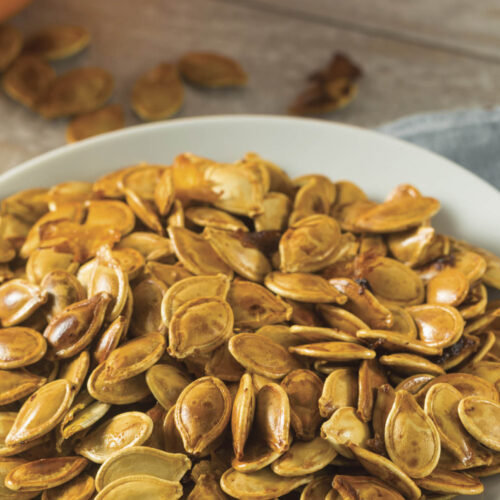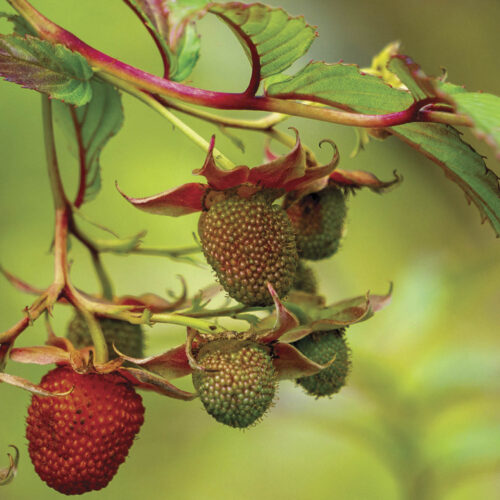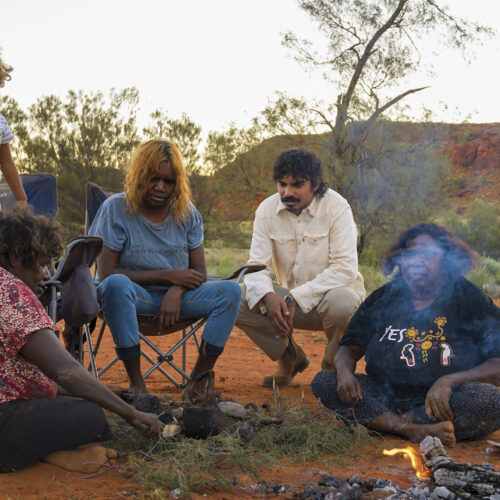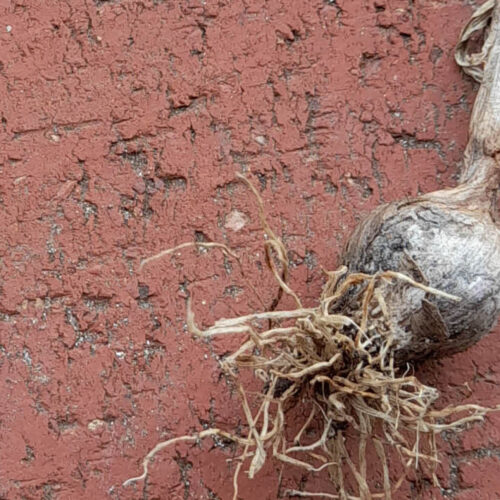Food Inc – organics and how to reduce our environmental cancer risk
2010-11-08T05:54:14+11:00
The case for organic food to improve health and reduce our exposure to cancer risks is at last being pitched at high levels. Rob Bauer ditched chemicals for organic farming to save his health.
For all the urgings of celebrity chefs and television gardening presenters, organic food still makes up a tiny proportion of the produce sold in the Western world. However, when a scientific body with a brief to instruct the US President tells him that people should avoid food grown with pesticides, it might indicate that the tide is turning.
The President’s Cancer Panel is no greenie group or left wing think-tank with an agenda. Comprising three scientists who review America’s cancer program and report directly to the President, the panel is the “mission control of mainstream scientific and medical thinking” in the US, according to X New York Times X columnist Nicholas D Kristof.
As such, it was stunning news when the panel released its report, X Reducing Environmental Cancer Risk X, in May and took a determined stance against pesticides and other dangerous chemicals in Americans’ everyday environment. As well as avoiding pesticides in food, the report recommended people filter their water, microwave food in ceramic or glass containers and choose toys and garden products low in toxins.
Pregnant women and children were especially vulnerable. Exposure to dangerous chemicals is so widespread that 300 contaminants have been detected in umbilical cord blood, the report’s authors said. In other words, babies are being born “pre-polluted”.
“The American people – even before they are born – are bombarded continually with myriad combinations of these dangerous exposures,” the report said. “The Panel urges you [the President] most strongly to use the power of your office to remove the carcinogens and other toxins from our food, water, and air that needlessly increase health care costs, cripple our nation’s productivity, and devastate American lives.”
The report also emphasised the dangers that pesticides pose to farm workers. “Farmers and pesticide applicators have significantly higher prostate cancer risk [than the general population], and female spouses have a significantly higher incidence of melanoma,” it said. “Female pesticide applicators have significantly higher incidence of ovarian cancer.”
In addition, children of pesticide users were at grave risk. “Leukemia rates are consistently elevated among children who grow up on farms, among children whose parents used pesticides in the home or garden, and among children of pesticide applicators,” the report said.
Back to organics
Those risks have proved too great for many farmers, including Rob Bauer, whose family has been farming in the Lockyer Valley, at Gatton, Queensland, since 1885. Bauer grew up with chemicals, but that all changed about 30 years ago.
“I was exposed to pesticides for the first 30 years of my life,” Bauer told X OG X. “Then, over the course of a few years, I saw half-a-dozen blokes in the near vicinity die of leukemia in their 50s. Two or three of them were neighbours. It made me realise that there wasn’t a lot of future in farming this way. I used to get crook when exposed to chemicals myself.
“We looked at how our grandparents did it. They farmed organically and they didn’t have these surges in cancer. We slowed down chemical use and within a few years stopped altogether.
“That was the main reason [for turning organic]. Also I couldn’t understand why some of the best soil in the world, which is what we’ve got, would need synthetic fertilisers put on it every year. If you didn’t apply fertiliser, plants didn’t want to grow. It was because the soil was dead. I thought, we’ve been given a bum steer.”
Bauer’s farm now produces certified organic vegetables and beef. It is through farmers such as Bauer that our food landscape is changing, albeit slowly. Regulatory change that would remove harmful chemicals from our food system altogether seems a long way off.
The President’s Panel criticised America’s “reactionary” rather than “precautionary” approach to pesticide regulation. In the US, chemicals have to be shown to be harmful before they are banned. In Europe, where the precautionary approach is employed, chemicals have to be proved to be safe before they go on sale.
Critics of Australia’s regulatory system say we too take too much of a reactionary approach. However, the Australian Pesticides and Veterinary Medicines Authority (APVMA) says new information is being constantly considered.
“The current regulatory system in Australia is very responsive,” APVMA spokesman Simon Cubit told X OG X. “We act in a timely manner when there are risks.”
Too close for comfort
Another problem hampering prospects for change in the US is that commercial interests and the American regulatory system are far too close for comfort, critics say. That relationship was highlighted by the release last year of X Food Inc X, an acclaimed feature-length documentary and scathing critique of the American food system.
X Food Inc X illustrated the extent of the problem with a graphic showing a series of business cards. On one side the cards showed executives’ and lawyers’ positions or former positions at agritech giant Monsanto; then the cards flipped, revealing their positions or former positions in regulatory bodies such as the Food and Drug Administration and Environmental Protection Agency.
It was the most telling scene in the film for Virginia farmer Joel Salatin, whose vision of small-scale farming is being hailed by many as an antidote to the industrial food model.
“The fox is guarding the henhouse,” Salatin told ABC Radio National during a visit to Australia in May.
Salatin, who appears in Food Inc and was featured in Michael Pollan’s book, The Omnivore’s Dilemma, is the founder of Polyface Farm. The property produces beef, pork, rabbits, poultry and timber on 550 acres.
The farm prides itself on its transparency, producing what Salatin calls “open-source food”. “Anyone is welcome to visit the farm any time,” says the Polyface website. “No trade secrets, no locked doors, every corner is camera-accessible.”
Animal farm
The Salatins are also proud of the way they treat their animals, using management models based on nature. Herbivores in the wild move daily onto fresh pasture and away from yesterday’s droppings, says Salatin, and Polyface’s cattle get the same opportunity: they are rotated to chemical-free fresh paddocks every day, as are the meat chooks, layers and rabbits. Turkeys and pigs are moved every few days.
Thousands of people visit Polyface Farm each year, Salatin told Radio National.
“It’s not very common that the average person can walk into a field of 1000 chickens or 400 head of cattle, or 50 or 60 pigs, and actually pet them, have them nuzzle them and have this wonderful communal relational experience with what they’re getting ready to eat tomorrow,” Salatin said.
That’s not to say that all these nuzzling, dancing, happy animals turn the visitors’ stay into a Disneyesque experience. Far from it. “We process chickens, turkeys and rabbits on site,” Salatin said. “We encourage customers to come out and we’ll give their children a knife and get them to do the execution.
“This is an important thing to realise – that our actions do have consequences. We live in a fantasy world of computer games and children have this idea that … if something bad happens, you wait 10 seconds and the machine gives you a new player.
“When you run that knife across the neck of that chicken or rabbit you don’t just press a button and have it come back to life. This reality check is an extremely important thing to encourage humility.”
Keeping it local
Salatin refuses to ship his produce around the country. Four hours from the farm is the limit. That’s partly so that all consumers are within a day’s drive and can easily visit to see where their food came from. It is also an effort to localise food production and so increase food security.
He is dismissive of the agritech industry’s claims that organic farming cannot feed the world. Polycultural diversity and good management means his farm produces “far more food per acre than the industrial”, he says.
Farmers need not be dependent on supermarkets, Salatin insists. Selling directly to consumers is increasingly viable as farm gate sales, farmers’ markets, buyers’ cooperatives and other outlets become more popular.
“Supermarkets are a new thing and they can go as quickly as they came,” Salatin says. “I am convinced 20 per cent of supermarket shoppers go there reluctantly. If they felt like there was an alternative they would go there, and the reason they don’t think there’s an alternative is because most people are spending more time being connected to the latest body piercing of Britney Spears than the food they’re going to eat.”
But that is changing, he believes.
“It’s a slow shift. A steady but slow shift in values and what’s important to people, and food is absolutely becoming more important to people as people realise how many short cuts, nutritionally, socially and ecologically, the industrial food system is making.”
More information
• Polyface Farm: www.polyfacefarms.com
• Life Matters interview with Joel Salatin: www.abc.net.au/rn/lifematters/stories/2010/2910011.htm






